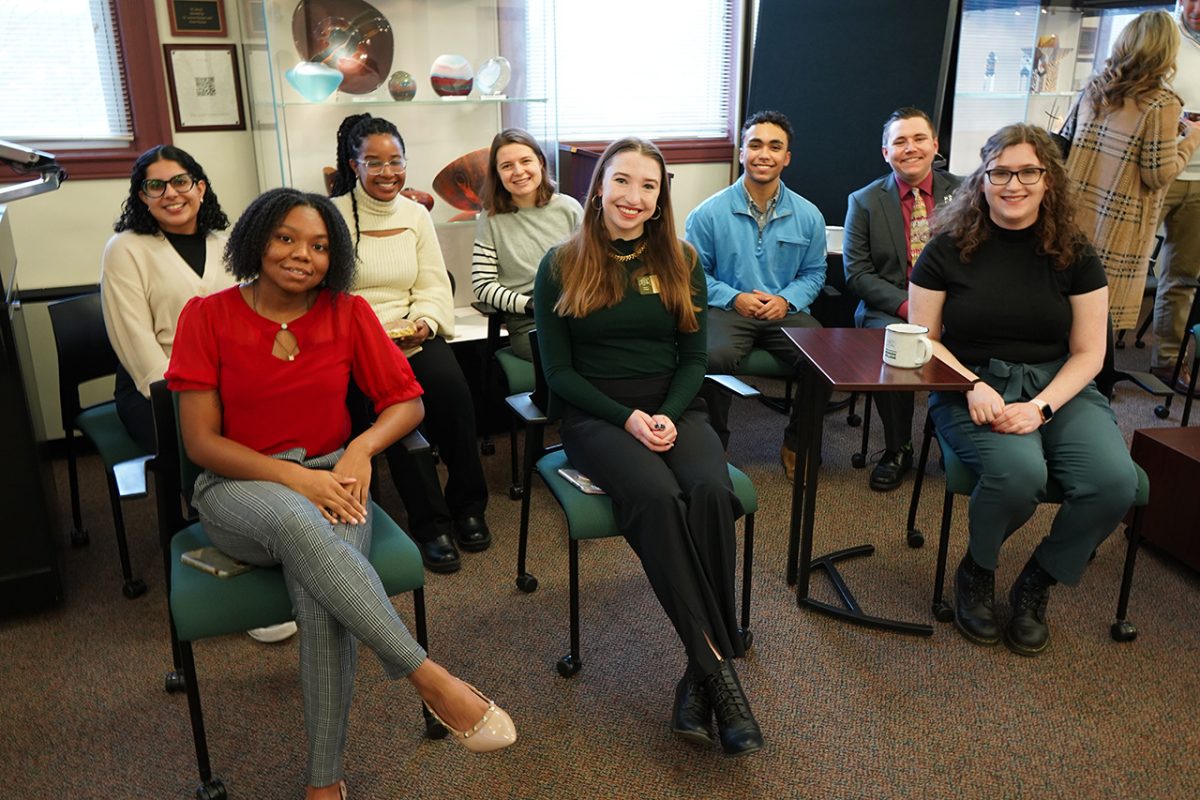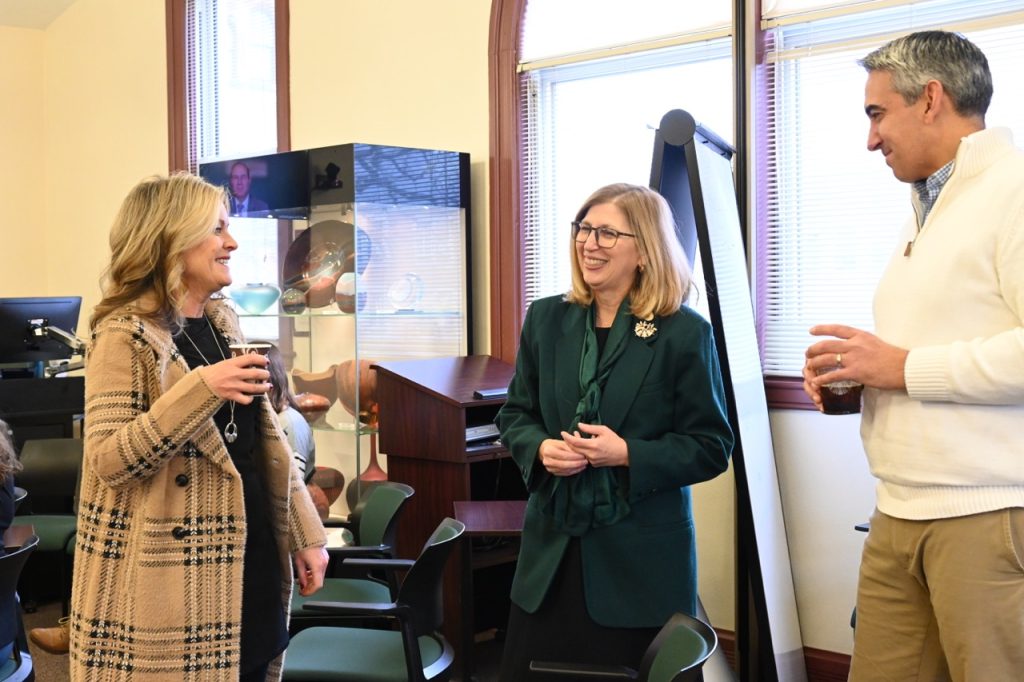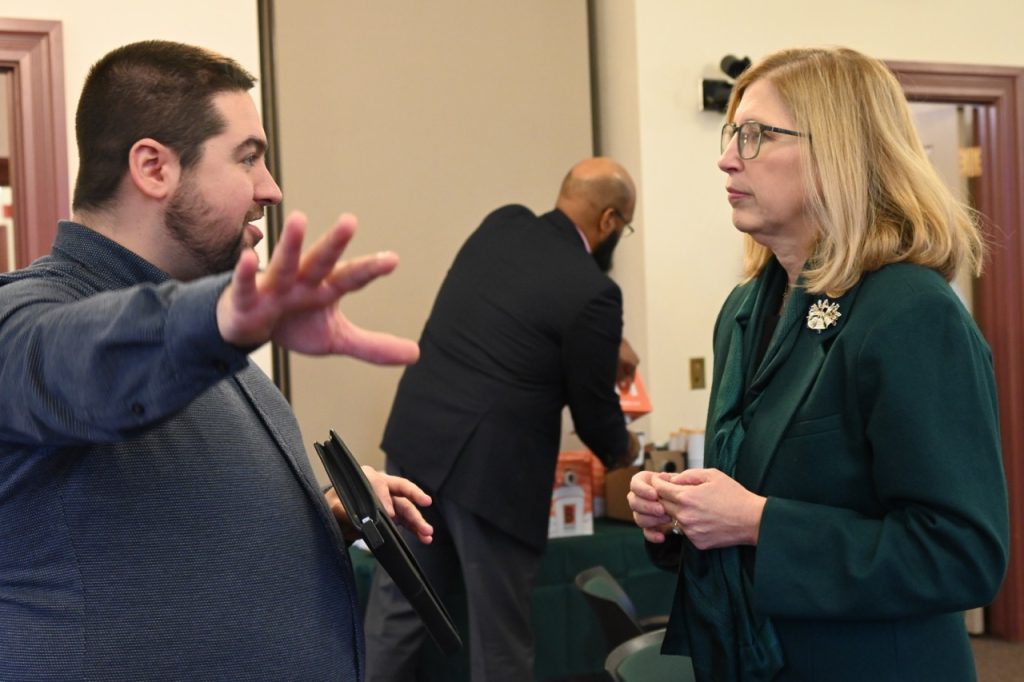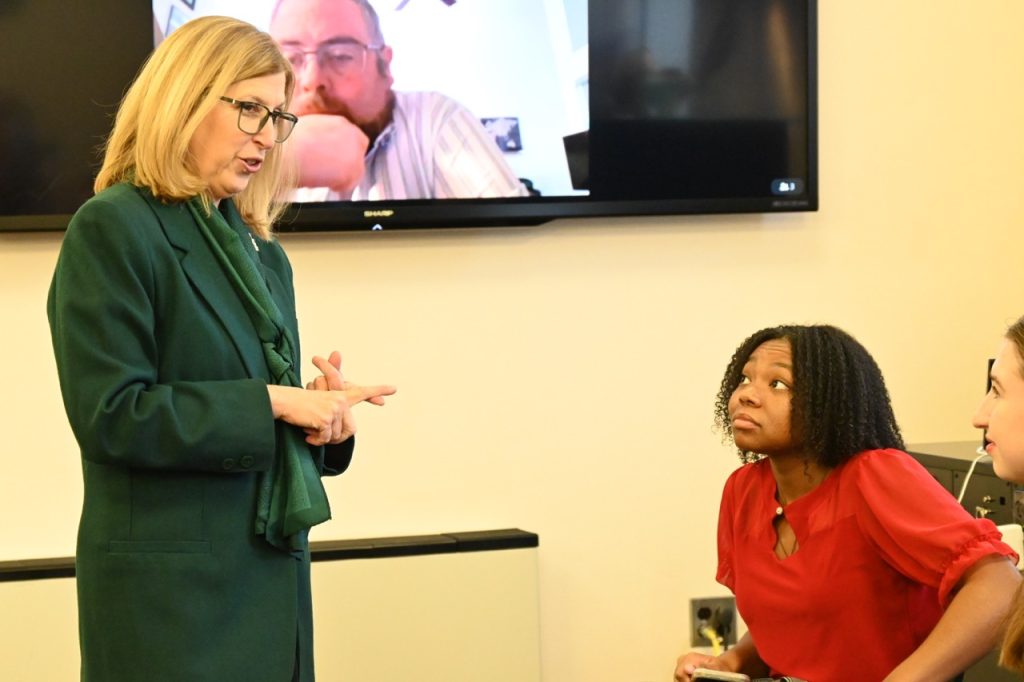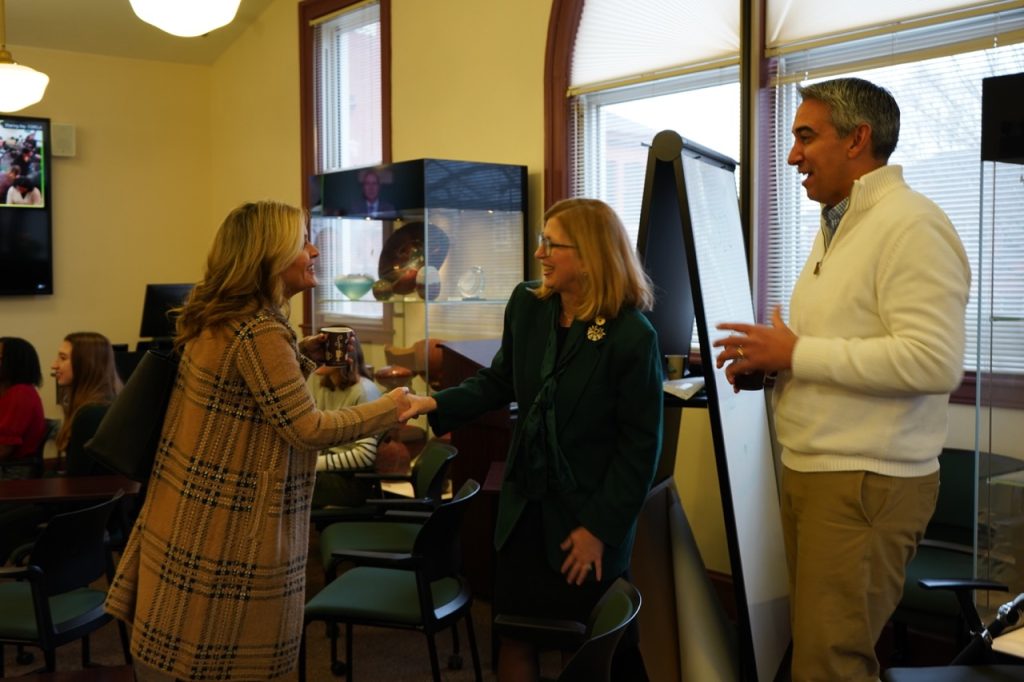Students and staff of the Honors College met with MSU leadership this week to discuss goals for a strategic plan, and to share highlights and achievements over the past year.
The meeting gave students a chance to introduce themselves to Interim President Teresa K. Woodruff and Interim Provost Thomas D. Jeitschko and share presentations about their involvement with the Honors College.
“The Honors College has provided me with multiple transformative experiences throughout my years here,” fourth-year student Rachel Drobnak said. “I started as an undecided student within the College of Agriculture and the Honors College really helped me narrow down what I wanted to do after college, which is something I really struggled with in my first few semesters.”
As well as sharing their positive experiences within the Honors College, student presenters also offered suggestions for improvement including increasing opportunities for students to connect with faculty and staff, expanding recruitment of minorities, and diversifying the academic majors of international students.
“I would love to see more interaction between students, faculty and administration,” fourth-year student Ellie Baden said. “I think that the Honors College has such an amazing and inspiring group of students and it’s really our staff that enables us to do all of the incredible things we are doing. I’d love to have more formalized opportunities for discussion and informal opportunities. I think it would really help students feel more confident about what they are doing.”
President Woodruff speaks to Honors College students and staff
After hearing from student presenters, Woodruff spoke about how much she values having these interactions with students.
“I think that’s really what makes for a thriving community is when all of us in the room, faculty and staff and the administration and every student really cares about each other,” she said. “It says that this big school that you all mentioned really is about individuals and that we are all here for each other and I really take that away as one of the themes from your brilliant presentations and thank you for sharing that with us.”
Provost Jeitschko discusses how to better create a feeling of community
Provost Jeitschko also spoke to students and staff and asked for input on what the Provost’s Office could do to help contribute to student success in the Honors College.
“Even if you can’t come together as a community of 4,500 people, to be able to have a common clause and purpose and philosophy and outlook that you can immediately identify is a little miracle that you’ve managed to have all these things,” Jeitschko said. “So, we’ll need to figure out how to try to scale and how to try to add to that.”
Staff and students share feedback on goals
Several students provided input on the development of a strategic plan and how the Honors College can increase community engagement while continuing a culture of academic excellence.
“Knowing that there are people who want to challenge me, but also want me to succeed really makes me feel accomplished,” fourth-year student Harnoor Kaur said. “That to me is a sense of community because these people want to see me grow as a person and learn new things.”
Numerous students said they have most felt like a community when they have been able to make connections with other Honors College students in programs like HC Impact, the Academic Scholars Program, and the Accelerating Connections & Excellence (ACE) Program.
“I taught the ACE Program and got to work with students individually through that, which was great, but one thing that we’ve been saying is that we have 4,500 students and one thing that stood out to me is the space… having the space to reach out to those students,” Honors College Associate Dean Glenn Chambers said. “We’ve been making miracles happen for a while with this and done a lot of great things, but I think it would be a lot better if we had more space.”
Multiple staff members also offered insight on how they hope to create community within the Honors College, and how to continue equipping students with the skills they need to succeed.
“To me what comes to mind with the phrase community culture or community and culture is that there can be that aspect of honors students themselves being able to see this space as one where we are elite but not elitist, where we are truly moving towards a community that actively cares about each other,” Graduate Assistant Kinsley McNulty said.

